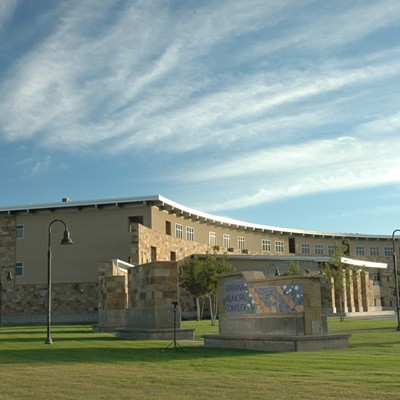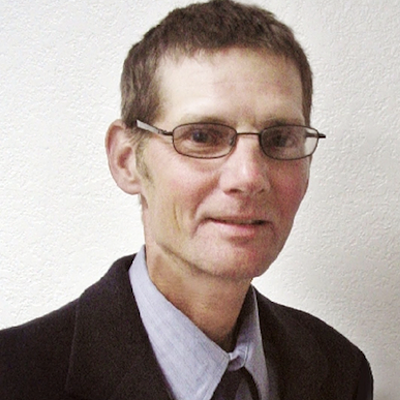Using terms like "appalled" and "outrageous," Mary Schuh, a longtime member of the Pima Association of Taxpayers, says, "Pima County is gouging the ratepayers this time."
County Administrator Chuck Huckelberry supports the recommendation. "You only replace a sewage facility once every 50 years," he says of the Roger Road treatment plant, "and that requires a huge capital cost."
Working from a Regional Optimization Master Plan (ROMP), the county intends to replace the existing Roger Road plant with a smaller treatment facility while also adding laboratory and staff space. The estimated cost of these improvements exceeds $200 million.
"How many times have we given them money for Roger Road?" Schuh asks. "I understand we have to have some taxes, but (we seem) to have a group that never seems to get the job done."
Huckelberry counters, "The money we've put into the plant has been for odor control and keeping it operational so it wouldn't collapse."
Some time ago, the county also told the Arizona Department of Environmental Quality (ADEQ) it would meet a requirement by 2014 to "reduce total nitrogen concentrations in discharged effluent" from the Ina Road treatment plant. The projected cost of doing this, plus increasing the capacity of the facility, is approximately $220 million.
On top of these enormous expenses are additional funds to run a connection pipe between the two westside treatment plants and to cover engineering work. The result is a total ROMP bill of $536 million.
To foot this bill, in a few weeks the Board of Supervisors will be asked to increase both the flat monthly sewer service fee and the volume charge, which is based on water usage.
The standard monthly fee would rise from $6.82 to $10.45 in three stages over the next 12 months, while the volume charge would increase by approximately 40 percent during the same period. The result, according to Jeff Nichols, deputy director of the Pima County Regional Wastewater Reclamation Department, would be the average monthly bill going from $20 to $29.
To supplement these new funds, assuming the Board of Supervisors supports them, the county is also planning a sewer bond election in November. If these revenue bonds are approved, Huckelberry estimates they would add an additional 6 to 8 percent to the rate increases.
That won't be the only bond election required to implement ROMP. Another one would be held in 2012.
By breaking the bond election into two parts, Nichols says the idea was to make the proposal "a little more palatable" to the voters. But he acknowledges that within seven years, the average monthly sewer bill would double to $40 or more.
Mark Stratton, general manager of the Metro Water District, is a member of the Regional Wastewater Reclamation Advisory Committee and voted with the majority to recommend the higher rates.
"The fees need to be increased so much," Stratton says, "because county leadership didn't keep up with increases over time. Now that's catching up to them."
Mark Shaffer, communications director for ADEQ, points out in an e-mail that average sewer rates in Pima County are lower than nine of Arizona's 15 counties. But his figures also show local rates are only slightly less than those in Maricopa County.
"The real hammer in the schedule," says Adam Bliven, chair of the citizen's committee, "is ADEQ. ... The Board of Supervisors (previously) approved commitments to them."
Bliven believes voter approval of the sewer bonds will help hold down the overall user charges.
But if the bonds don't pass, Nichols acknowledges the county has a fallback position to implement ROMP. "We could privatize the treatment plant at Roger Road," he suggests, "or ask the Board just to increase rates sufficiently. I don't think we can get out of these projects."
A few weeks ago Huckelberry tried another tactic to hold down the proposed rate increase. He asked ADEQ for a five-year delay in implementing the improvements slated for the Ina Road plant.
"They wouldn't support that," the county administrator reports. "They talked about others complying with the regulations, what (nitrogen) does to the environment and groundwater, and the need for the regulations to be met."
Nichols lists other possible future needs for the improvements. "After nitrogen," he says, "we'll see phosphorus (being regulated), then pharmaceuticals. The regulations will only get more onerous."
If the Board of Supervisors approves the recommended rate increases, all Pima County sewer ratepayers may get sticker shock starting with their March bill. But for some customers, there's potential relief.
The county operates a "Sewer Outreach Subsidy Program" for qualified applicants. Depending on household income, the assistance can cover 25, 50, or 75 percent of the monthly volume charge. At its Feb. 17 meeting, the Board should also be asked to expand the program to include the flat monthly service fee.
In the fiscal year that ended last June 30, just over 1,400 households took advantage of this program. That figure has since fallen to about 1,000, but if the Board of Supervisors increases sewer rates by 45 percent, a lot more people may become involved.
Those interested in the Sewer Outreach Subsidy Program should call the Pima County Community Action Agency at 243-6794 and leave a message.












